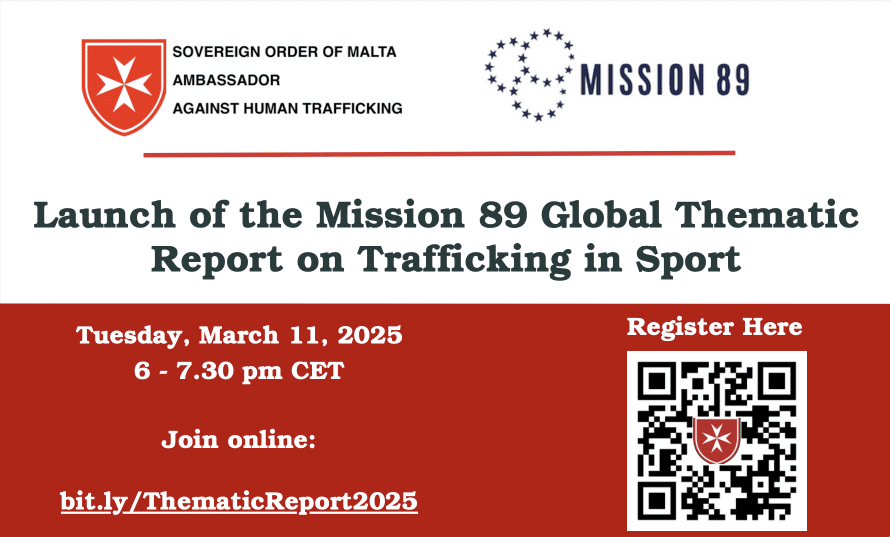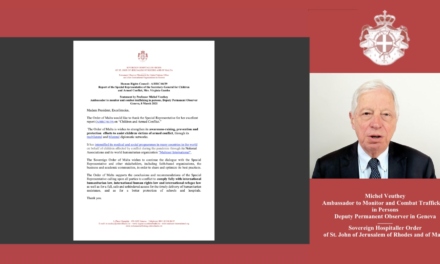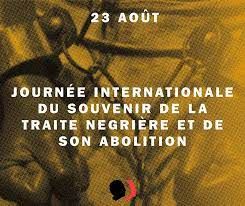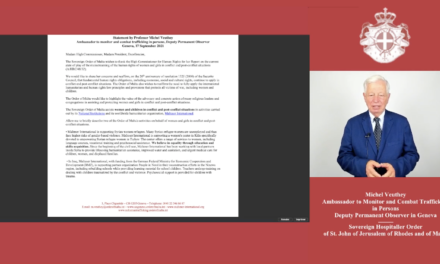On 11 March 2025, the Sovereign Order of Malta, in partnership with Mission89, hosted a two- hour webinar to launch the 2024 Global Thematic Report on Sport Trafficking. The event brought together distinguished speakers, experts and stakeholders to discuss the exploitation of vulnerable people in the sports industry, the findings of the report and actionable recommendations to combat sport trafficking.
The aim of the webinar was to present the key findings of the Global Thematic Report on Trafficking in Sport, produced in partnership with Loughborough University, in order to raise awareness of human trafficking within the sports industry, to promote dialogue on legal and policy responses, and to encourage collaboration between stakeholders to protect vulnerable athletes.
Prof. Michel Veuthey, Ambassador of the Sovereign Order of Malta to Monitor and Combat Trafficking in Persons, and Ms. Lerina Bright, Founder and Executive Director of Mission89, opened the webinar by highlighting the increasing prevalence of human trafficking in sport. They stressed the importance of defining and addressing trafficking in sport as a unique form of exploitation. Ms. Bright presented an overview of the significance of the Report.
Mr. Kevin Hyland OBE, former UK Independent Anti-Slavery Commissioner, provided insights into the global challenges of human trafficking and highlighted the urgent need for policy reform and stronger enforcement mechanisms. Mr John-Michael Lander, an American survivor advocate,
shared his personal experience of exploitation in sport. His candid and moving testimony highlighted the psychological and social impact of trafficking on young athletes.
Dr Olawale Maiyegun, former Nigerian Ambassador, and Dr Monique Emser, Professor at the KwaZulu Natal University in South Africa, presented the international legal framework and basic concepts of sport trafficking. They discussed the lack of a clear legal definition of sport trafficking, the research methodology and findings of the report, and the theoretical framework that guided the study.
Dr. Katarina Schwarz, Associate Director at the Rights Lab, Nottingham University, analysed the mechanisms of trafficking, cross-border implications and regulatory gaps. Her presentation also included a typology of sports trafficking, case studies highlighting different forms of exploitation, and the need for improved regulatory frameworks.
Dr Olawale Maiyegun made recommendations that focused on strengthening anti-trafficking laws in line with the UN Trafficking Protocol, improving victim protection measures and enhancing cooperation between governments, sports organisations and law enforcement agencies.
The panel discussion was moderated by Ms Lerina Bright. The panel included experts such as Hon. Jared Okelo, Member of the National Assembly of Kenya, and Ms Marie-Laure Lemineur, Head of Safeguarding, FIFA. The discussion focused on the practical implementation of the report’s recommendations, challenges in enforcing anti-trafficking policies in sport and opportunities for cross-sector collaboration.
Participants engaged in a dynamic discussion, sharing perspectives and proposing innovative solutions to combat sports trafficking. Prof. Michel Veuthey summarised the key takeaways and reaffirmed the commitment of the Sovereign Order of Malta and Mission89 to continue advocating for stronger protections against sports trafficking.
The webinar successfully highlighted the urgent need for targeted interventions in the sports industry to combat human trafficking. Future steps include further dissemination of the report’s findings, advocacy to promote policy change and continued stakeholder engagement to implement the proposed recommendations. The event reinforced the importance of international cooperation in addressing human trafficking in sport and provided a roadmap for future action.
The webinar gathered 60 live participants from 25 countries: Argentina, Austria, Benin, Burkina Faso, Cameroon, Canada, Democratic Republic of Congo, France, Ireland, Italy, Kenya, Lebanon, Morocco, Netherlands, Nigeria, Norway, Poland, Sierra Leone, South Africa, Spain, Switzerland, Trinidad and Tobago, Uganda, United Kingdom and United States of America.
Access the Global Thematic Report HERE and the video recording of the webinar HERE, with subtitles in seven languages. Each of our 45 past webinars was viewed live or via video replay by an average of 440 people from 180 countries.

























